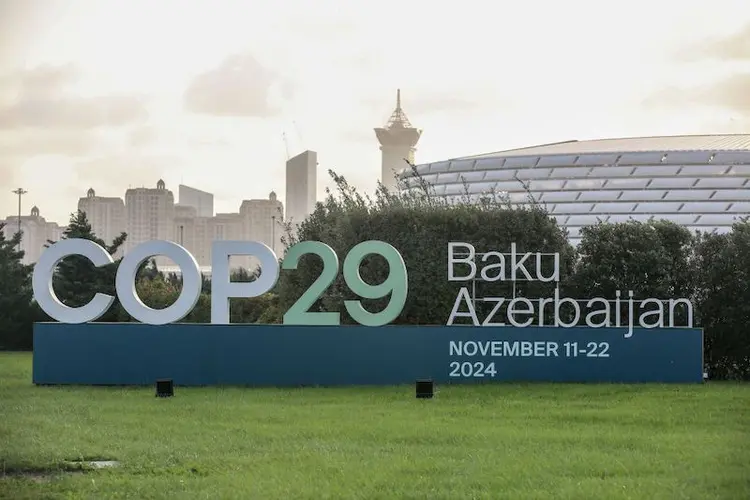Governments of African countries have expressed dissatisfaction with the new collective quantified goal (NCQG) of $300 billion a year by 2035 climate finance deal proposed by world leaders at the United Nations Conference of Parties (COP29).
On Sunday, November 24, at the closing plenary of COP29 in Baku, Azerbaijan, world leaders reached a consensus on the “Baku Finance Goal,” which aims to provide $300 billion annually to support climate adaptation and mitigation efforts by 2035.
The negotiations were extended by 33 hours, and COP29 President Mukhtar Babayev announced that the deal, despite challenges, represented the best possible outcome given the geopolitical fragmentation of the year.
Babayev commented, “The Baku Finance Goal represents the best possible deal we could reach. In a year of geopolitical fragmentation, people doubted that Azerbaijan could deliver. They doubted that everyone could agree. They were wrong on both counts.”
Details of the $300 Billion Agreement
The deal was negotiated over a long period, with Least Developed Countries (LDCs) initially pushing for a much larger amount—$1.3 trillion annually, mostly in grants rather than loans, to meet their climate finance needs. However, this proposal was rejected by wealthier developed countries, who argued that such a commitment was not feasible. Initially, developed nations proposed a smaller figure of $200 billion to $250 billion, which was also rejected by the LDCs, who argued that this amount would not meet their climate adaptation and mitigation goals.
The final agreement, which set the goal at $300 billion per year by 2035, will be achieved through a mix of public and private financing, as well as bilateral and multilateral deals. The deal also called for increased efforts to meet the LDCs’ goal of $1.3 trillion annually by 2035. However, the $300 billion deal was still far below the expectations of African nations and other developing countries.
Rejection of the Deal by LDCs
Despite the consensus on the $300 billion target, many LDCs rejected the deal, stating that it fell short of the climate finance commitments made at previous COP summits. At COP27, nations agreed on a historic loss and damage fund, and COP28 saw a global commitment to transition from fossil fuels and boost climate resilience.
However, the COP29 negotiations were expected to yield a more substantial financial commitment, especially from the wealthier nations that have contributed the most to climate change.
African representatives and negotiators from the Global South stated that the deal was unacceptable.
One delegate remarked, “A no deal is better than a deal that commits African countries to what is undeliverable without serious climate finance.”
Nkiruka Maduekwe, the Director-General of Nigeria’s National Council on Climate Change (NCCC), expressed her dissatisfaction, labeling the $300 billion target as “unrealistic.”
She emphasised that this amount would not be sufficient to support climate adaptation and mitigation plans for developing countries, which are already facing severe climate-related challenges.
Maduekwe said, “That developed countries are saying they would take the lead with $300 billion dollars by 2035 is a joke and not something we should take lightly. I do not think it’s something that we should clap our hands and force us to take it. I think we should rethink it. It is not just by putting it in statements but we have a right as countries to choose if we are going to take this or not. And I’m saying that we do not accept this.”
She further questioned the credibility of such agreements, stating that these deals would not support ambitious Nationally Determined Contributions (NDCs) if they lacked adequate financial backing.
International Criticism and Reactions
Other African leaders also expressed concerns about the fairness of the deal. Sierra Leone’s Environment Minister, Jiwoh Abdulai, criticized the agreement, claiming that it showed a “lack of goodwill” by developed nations to genuinely support climate action in poorer countries.
The Pan African Climate Justice Alliance (PACJA) echoed these concerns, with its Executive Director, Mithika Mwenda, arguing that the deal followed a well-known cycle of developed nations forcing developing countries to accept agreements on their own terms, often without sufficient consultation or compromise.
Mwenda commented, “Baku seems to repeat the same pattern from previous COPs where negotiations are deliberately dragged through at snail pace for two weeks, only for the final card to be released by invisible powers at the last minute, with a take-or-leave offer that is shoved down the throats of helpless poor countries.”
UN Secretary-General Urges Full Commitment to the Deal
Despite the discontent, UN Secretary-General António Guterres urged countries to unite and honor the new commitment. Guterres called for the full implementation of the $300 billion target, stressing the need for concrete actions to turn the financial pledges into actual climate action.
He said, “It must be honoured in full and on time. Commitments must quickly become cash. All countries must come together to ensure the top-end of this new goal is met.”
The deal reached at COP29 marks a significant step in climate finance negotiations, but the strong objections from LDCs and African countries reflect the continued divide between developed and developing nations on the issue of fair and adequate climate funding.
The debate over the sufficiency of the $300 billion goal is likely to continue as nations work toward a more comprehensive solution to the global climate crisis.



